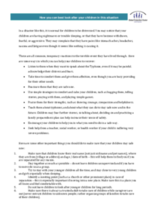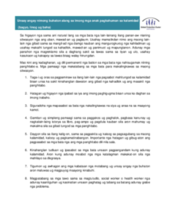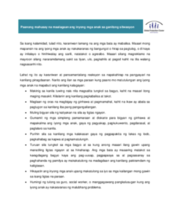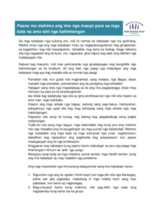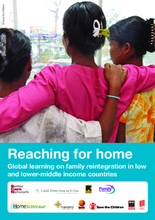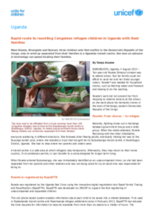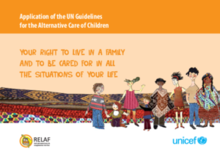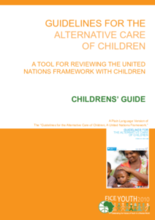Displaying 51 - 60 of 111
Key Messages for Caregivers in a Sudden Onset developed by the Global Child Protection Cluster in response to Typhoon Haiyan (Yolanda) in the Philippines
Key Messages for Caregivers in a Sudden Onset developed by the Global Child Protection Cluster in response to Typhoon Haiyan (Yolanda) in the Philippines (Cebuano)
Key Messages for Caregivers in a Sudden Onset developed by the Global Child Protection Cluster in response to Typhoon Haiyan (Yolanda) in the Philippines
Key Messages for Caregivers in a Sudden Onset developed by the Global Child Protection Cluster in response to Typhoon Haiyan (Yolanda) in the Philippines (Ilongo)
This report from the UN High Commissioner for Refugees details the experiences of Syrian refugee children and youth.
This online resource, complete with videos and infographics, accompanies a report from the UN High Commissioner for Refugees which details the experiences of Syrian refugee children and youth.
This inter-agency, desk-based research aims to arrive at a clearer understanding of reintegration practices for separated children in low and lower-middle income countries. The research pulls together learning from practitioners and academics working with a range of separated children, such as those torn from their families by emergencies, children who have been trafficked or migrated for work, and children living in institutions or on the streets.
RapidFTR is a versatile open-source mobile phone application and data storage system that seeks to expedite the Family Tracing and Reunification (FTR) process by helping humanitarian workers collect, sort and share information about unaccompanied and separated children in emergency situations so they can be registered for care services and reunited with their families.
This RELAF booklet, Application of the UN Guidelines for the Alternative Care of Children, is a child-friendly guide to the Guidelines of for the Alternative Care of Children meant for children and adolescents to inform them of their right to live with their families and make that right a reality.
This booklet from SOS Children’s Villages International was created for young people to explain in a simple manner the main points of the Guidelines for the Alternative Care of Children approved by the United Nations General Assembly in 2009. The booklet helps its young audience think about the principles of alternative care and what these mean for children and families in different situations.

